Why Is My Halibut So Dry?
Halibut is a popular choice for seafood lovers due to its mild flavor and firm texture, but cooking it ideally can be tricky. One of the most common issues when preparing halibut is that it tends to dry out easily.
This happens because halibut is a lean fish with very little fat to keep it moist during cooking. Its dense, low-fat flesh can quickly lose moisture and become overcooked, resulting in a dry, tough texture.
Focusing on gentle cooking methods and precise timing is essential to prevent halibut from drying out. Cooking at lower temperatures, whether baking, poaching, or grilling, helps retain moisture.
Marinating or basting the fish with oil or butter can add extra moisture and protect it from drying out. Additionally, avoid overcooking by keeping an eye on the internal temperature; halibut is best when cooked to an internal temperature of 130°F to 135°F.
Finally, allowing the fish to rest briefly after cooking will help redistribute its juices, producing a more succulent result. Following these tips ensures that your halibut remains tender, flavorful, and never disappointingly dry.
Let’s look at this more closely.
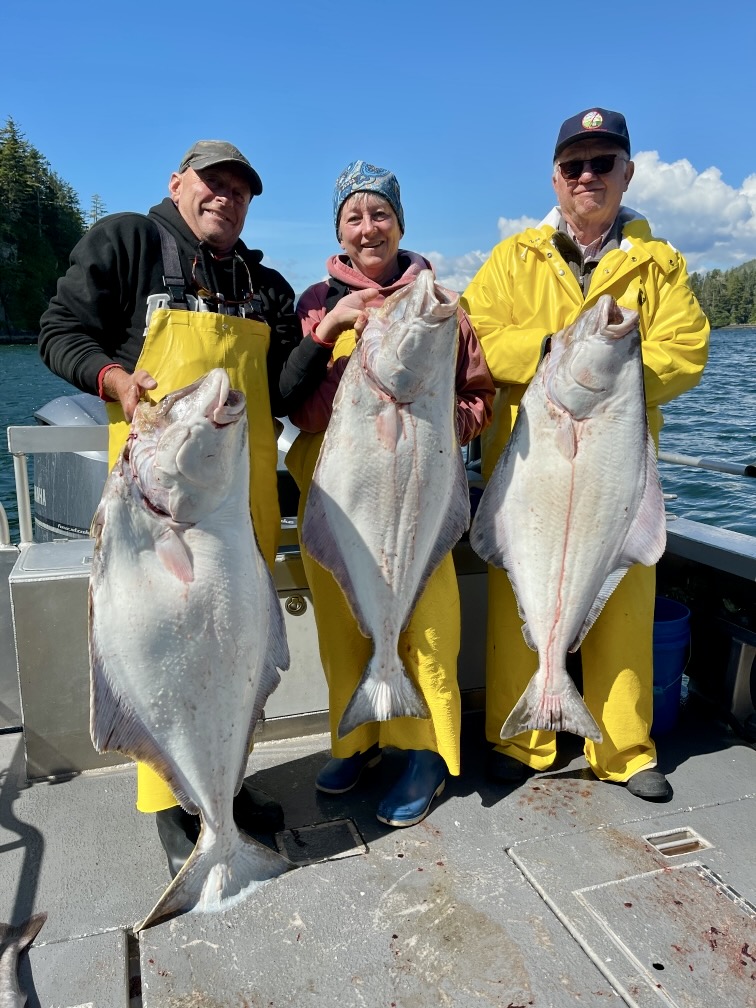
What Is Halibut?
Halibut is a type of flatfish belonging to the family of right-eyed flounders. It is one of the largest flatfish species, commonly found in the North Pacific and North Atlantic Oceans. Halibut is a prized catch in the culinary world for its mild flavor and versatility.
Halibut meat is known for its firm texture and delicate, mild taste. It has a white, slightly translucent flesh that becomes opaque when cooked.
Unlike fattier fish like salmon, halibut’s meat is lean, with very little natural oil or fat, contributing to its tendency to dry out if overcooked. Its subtle flavor makes it a versatile ingredient that pairs well with various seasonings and sauces, allowing it to shine in simple, complex dishes.
What Does Properly Cooked Halibut Suppose to Taste and Feel Like?
Let’s start by describing how halibut should taste and feel properly cooked. When done right, halibut is sweet and mild, and the meat flakes into succulent large, tender but firm pieces.
It should not be tough, stringy, or lacking flavor. Instead, the texture should be tender, and you shouldn’t need a knife to cut through it.
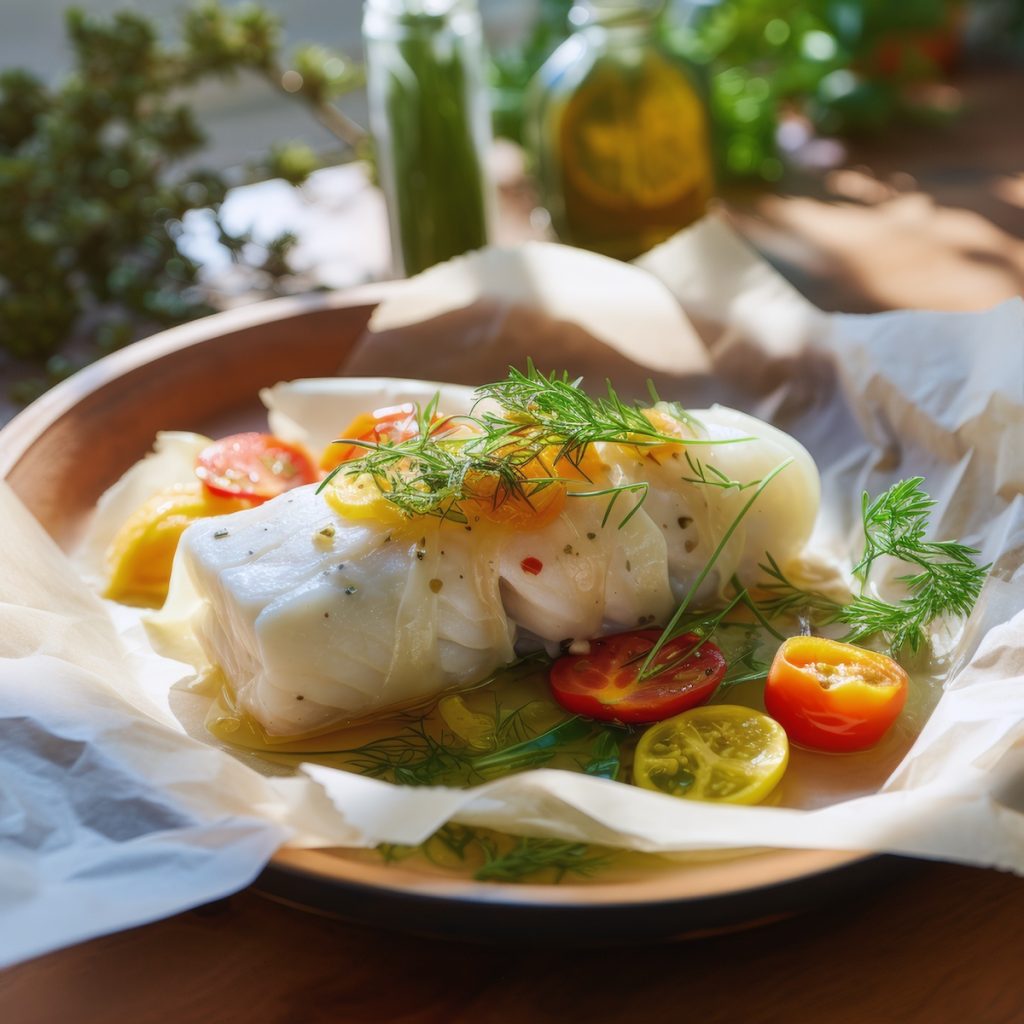
Why Does Halibut Dry Out and Become Tough So Easily?
Halibut dries out when cooking due to the following reasons:
Halibut is a lean fish with very little fat, which makes it more prone to losing moisture during cooking.
Its dense texture means moisture can escape quickly, leading to dryness.
Halibut is delicate and can easily be overcooked, which causes it to become tough and dry.
Cooking at high temperatures can cause the fish to dry out faster, especially when the heat is too intense.
Without additional moisture from marinades, sauces, or basting, halibut is more likely to dry out during cooking.
Cutting into the halibut immediately after cooking without allowing it to rest can result in moisture loss, making the fish drier.
How to Prevent Your Expensive Halibut From Drying Out When Cooking?
Use gentle heat to avoid drying out the fish. Lower cooking temperatures help retain moisture.
Monitor the cooking time closely to avoid overcooking. Halibut is best when cooked to an internal temperature of 130°F to 135°F.
Using techniques like poaching, steaming, or baking in a foil or parchment packet to trap moisture.
To shield halibut from direct heat, cook it with a protective layer, such as bacon or prosciutto, or bake it with a crust.
Apply marinades, sauces, or butter/oil during cooking to keep the fish moist and add flavor.
Allow the fish to rest a few minutes after cooking to let the juices redistribute, ensuring a more succulent texture.
To prevent overcooking, cook halibut to the correct internal temperature with a food thermometer.
Sear halibut briefly on high heat to create a crust, then finish cooking in a lower-temperature oven to keep the inside moist.
Try Other Cooking Techniques To Prevent Overcooking Halibut
Sous Vide Halibut
If you follow the Reluctant Gourmet, you’ll know I’m a massive fan of sous-vide. For example, I’ve figured out sous viding swordfish is my best chance not to overcook or undercook this problematic fish. I’ve pan-fried, grilled, and roasted swordfish for years, and it isn’t easy to get it right.
Of course, I thought, why not sous vide halibut? This technique is great for swordfish, lobster, and tilapia, and I found out it’s also excellent for halibut.
Halibut is a firm flesh fish that should be flaky when appropriately cooked. The firm flesh is separated by connective tissue, so you need to cook it long enough to break down this connective tissue. Cook it just a little too long, and you have dried-out fish.
I like my halibut moist and flaky, so I sous vide a 2-inch halibut filet for 45 – 60 minutes at 140°F. If I have 1-inch fillets, I sous vide them for 30 45 minutes at the same 140°F. Now, if you want them moister, cut down the cooking time to 30 minutes.
After cooking the halibut sous vide, I like to remove it from its vacuum-sealed bag and sear it in a cast iron pan or on the grill for color. But, again, be quick and don’t cook it too long, or you can dry it out.
Some Other Cooking Halibut Tips
One key to cooking halibut so that it isn’t dry is to use a cooking method that doesn’t require a long cooking time. Halibut is a dense and firm fish, which means it can take a while to cook through. If you cook it for too long, the heat can break down the fish’s delicate structure, causing it to become dry and chalky.
To avoid this, choose a cooking method that doesn’t require a long cooking time, such as grilling, broiling, or pan-searing. These methods allow you to quickly sear the outside of the fish, locking in the moisture and flavors while the inside remains tender and moist.
Another important factor in cooking halibut so that it isn’t dry is not to overcook it. Halibut is a dense and firm fish, so it can be challenging to determine when it is fully cooked. A good rule of thumb is to cook the halibut until it is opaque and flakes easily with a fork, but not so long that it becomes tough and dry.
One way to avoid overcooking the halibut is to use a cooking thermometer. A halibut steak is fully cooked when it reaches an internal temperature of 135-140 degrees Fahrenheit. This temperature ensures that the fish is cooked through but not overcooked.
Brining
In addition to choosing the right cooking method and avoiding overcooking, there are a few other techniques you can use to ensure that your halibut is tender and moist. One is to brine the fish before cooking. Brining involves soaking the fish in a mixture of water, salt, and sugar, which helps to retain moisture and add flavor.
Basting
Another technique is to baste the halibut while it cooks. This involves spooning a flavorful liquid, such as melted butter or a marinade, over the fish while it cooks. The liquid will help to keep the halibut moist and add flavor and a nice glaze to the finished dish.
Resting
Finally, it’s essential to let the halibut rest after cooking. This will allow the fish to reabsorb any moisture that may have been lost during the cooking process, ensuring that it is tender and moist when served.
In conclusion, there are several key techniques for cooking halibut so that it isn’t dry. Choose a cooking method that doesn’t require a long cooking time, avoid overcooking the fish, and consider brining and basting to add moisture and flavor. With these tips, you can enjoy perfectly cooked halibut every time.

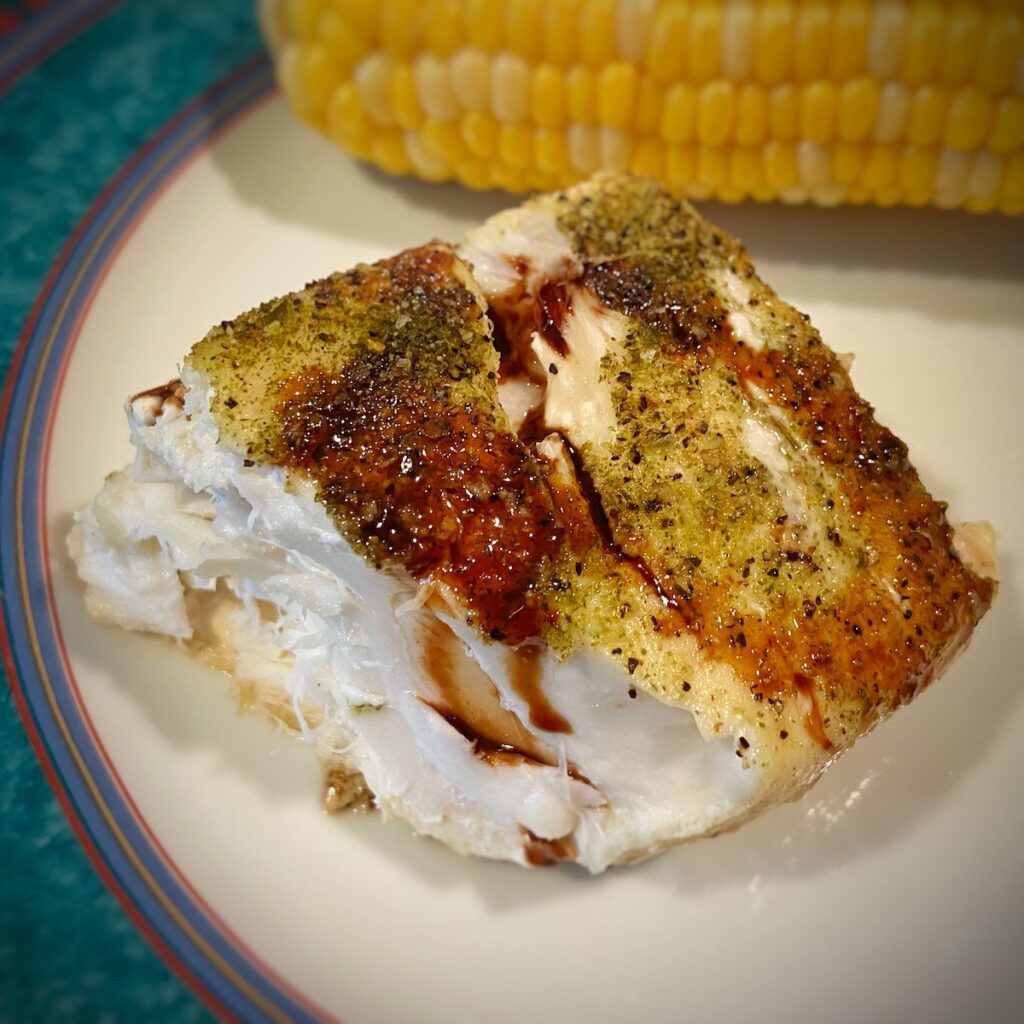
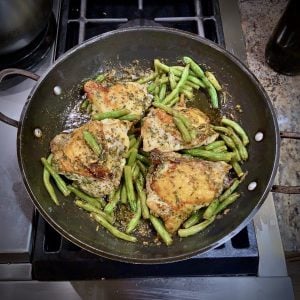
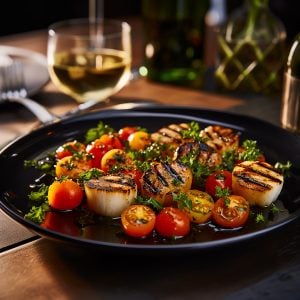

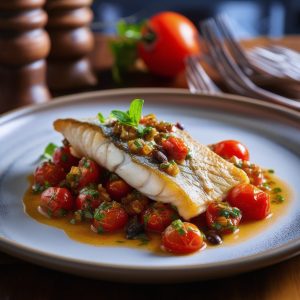
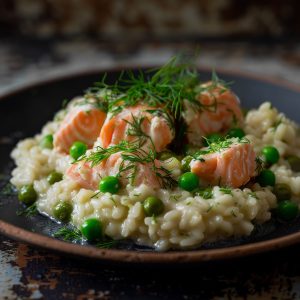
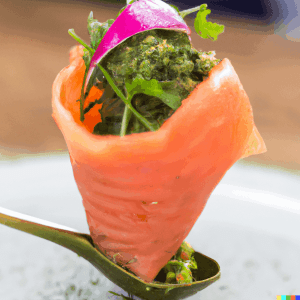
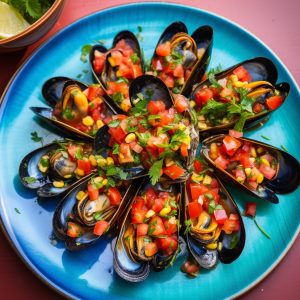
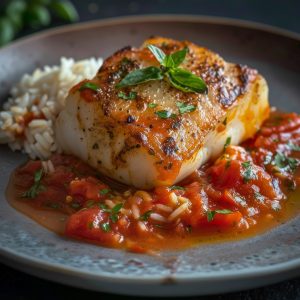
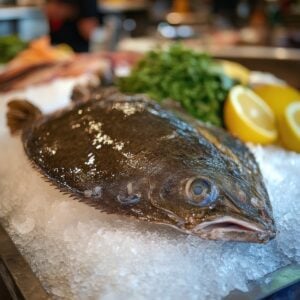


5 Responses
I just discovered your fun web site when I was checking to see if you had Les Cheneaux Culinary School on it (it’s a great school and restaurant but there is a typo – it’s in Hessel not Hassel). I lived in the Seattle area for many years, so halibut was a favorite. I learned of the following recipe from a highly regarded commercial fisherman and cook. I put it in my book, Hollyhocks & Radishes, for preparing large, firm Great Lakes fish. It’s a no-fail, and absolutely the only way to prepare halibut. To serve 6: one 2-3 lb. filet, juice of 2 limes, salt & freshly ground pepper to taste, low-fat mayonnaise, 1/4 cup freshly grated Parmesan. Preheat oven to 500 degrees. Place fish in shallow glass dish to marinate in lime juice up to 30 minutes. Lay filet on cookie sheet lined with aluminum foil seasoning with salt and pepper to taste. Spread about 1/8-inch of mayo over fish. Top with cheese. Place fish in preheated oven, immediately turning it off. Bake 30 minutes before opening door. Fish will be perfect…actually you can leave it in even longer than that, if the need be.
Thanks Bonnie for sharing you recipe. I’ll have to check out your cookbook. And thanks for noticing the typo. Best.
It’s really a nice recipe and mouth watering.
Yea, a thousand times “don’t overcook it”, but no proper recipe just words:-
“HOW TO COOK HALIBUT WITHOUT DRYING IT OUT”. Yes, pan fry, oven fry, etc. you mean all the usual methods but HOW, WITHOUT DRYING IT OUT…………?…
Hi Eleanor, I updated this post to offer even more ways to prevent halibut from drying out when cooking but it seems you are looking for a specific recipe. One of my favorite recipes for cooking moist halibut is in parchment paper. You can find the recipe here.